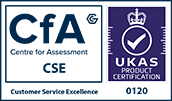Getting the best out of books and eResources for your studies
This page provides short introductions to help you think about useful skills at Key Stage 5. It will also give you a head start on using resources at university.
- How can I tell if a website is of good quality?
- How can I do a web search with more academic results?
- How can I quickly pull out what I need from a book without reading it all?
- How do I critically engage with what I read?
- How can I use other people's work without getting into trouble?
- How do I reference other people's work?
- Free resources on study skills
How can I tell if a website is of good quality?
Remember, anybody can create a website. Some are biased, inaccurate, or otherwise not trustworthy for academic work.
When using a website you need to be careful and critical about what you decide to use. Academics Skills Advice have produced a guide for evaluating sources for quality.
How can I do a web search for more academic results?
Try using Google Scholar instead of just Google. Google Scholar retrieves academic material, including books, journal articles, reports from reputable institutions and educational establishments, etc. All of these are considered to be suitably academic.
Avoid commercial websites. These are easy to identify as they have either .com or .co.uk in the web address. These should be ignored for academic purposes, because they are selling things and will not provide unbiased information.
Do not be satisfied to search with the first set of words you think of and accept the first webpage in the results list. Would adding "study" or "statistics" to your search help, for example? If one set of keywords does not work particularly well, try different ones. Walden University have put together further tips on how to pick your keywords.
How do I quickly pull out what I need from a book without reading all of it?
Use the outline or 'shape' of the text to help you find what you need. For example:
- With books: you will find a contents page at the beginning with chapter headings, and an index at the back that goes into more detail about what the book contains and which page to turn to.
- With articles: use any subheadings or section beginnings to navigate your way through the text, finding the most relevant points for your purpose. You can skim the whole text to locate the most important sections.
Try to spot key words and phrases in the sections you picked for use to see whether the information is really relevant.
Tips on effective reading are available online from the University of Bradford Academic Skills Advice team.
How can I critically engage with what I read?
Critical analysis of what you read is a significant feature of work at University. Many students may find this aspect of higher education difficult to grasp initially. Our Academic Skills Advice service has a guide explaining what critical analysis involves and how to develop this skill.
How can I use other people's work without getting into trouble?
Using other people’s work (words, ideas, images, diagrams, computer code etc.) without giving acknowledgement to the creator is called plagiarism and is a serious offence at University.
Take a look at the Library's page on plagiarism before you submit your first assignment. It explains in more detail what plagiarism is and is not through practical examples.
How do I reference other people's work?
Citing and referencing correctly is a skill you need to develop early. This ensures you do not plagiarise and it shows your tutors that you have found and used quality information. It is about making it clear what information in your work comes from somewhere else, and helping the person reading your work track down your sources.
There are many different referencing styles. Each of them follows a pattern designed to make it easy for the reader to spot the important bits of information in the reference. These include the author and the title of a book you used.
Take a look at an example of the referencing style used at the University of Bradford to get a flavour and head start on what is expected.
Free resources on study skills
- Trans:it: interactive learning materials to make the transition to higher education easier.
- Study skills resources: aimed at Bradford’s students.
- LearnHigher resources: aimed at all university students.
- A study skills package produced by the University of Derby.
- A set of exercises to help students learn about plagiarism created by the London Metropolitan University.
- A guide to plagiarism and referencing written by the De Montford University.


